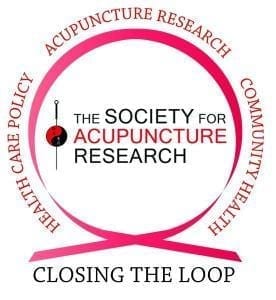By Stacy Gomes
The 2019 Research, Health Care Policy and Community Health conference in Burlington, Vermont showcased the expansive skills and accomplishments of several faculty and alumni. Faculty members Beau Anderson (New York) and Anna Smith (San Diego) and alumnus Ken Glowacki (San Diego) kicked off the pre-conference with the Educator’s Roundtable on how we engage students in research through evidence-informed practice and incorporating fundamental theories of the medicine. The participants agreed there is a need for more teacher training on incorporating research into courses at the colleges.
Integration of Acupuncture in the U.S. Veteran’s Administration
Faculty member Juli Olson (San Diego), alumnus Justin Heesakker (San Diego), and board member Ben Kligler presented the integration of acupuncture at the Veteran’s Administration, the largest healthcare system in the United States. Presenters discussed the challenges and opportunities of rolling out acupuncture on such a large scale across a large area. A list of approved evidence-based complementary integrative health (CIH) methods were added to the Veteran’s Benefits Package in 2017 that includes acupuncture, biofeedback, clinical hypnosis, guided imagery, massage, meditation, taiji/qigong, and yoga. In addition, the Veteran’s Administration created a Qualification Standard for Licensed Acupuncturists so that they may be hired as full-time federal employees. Veterans now have access to acupuncture care that they previously would have paid for out of pocket, and new possibilities are opening for large-scale acupuncture research. The growth of acupuncture in the VA is expected to continue at a quick pace to meet the demand for acupuncture services.
Julie Olsen, DC, LAc, works in the VA Central Iowa Healthcare System. Justin Heesakker, DAOM, LAc is an implementation consultant for the U.S. Department of Veterans Affairs, running the Field-Based Implementation Team (FIT). Ben Kligler, MD, MPH, is the National Director of the Coordinating Center for Integrative Health of the U.S. Veteran’s Health Administration.
Lamya Kamel, Chicago faculty member and chair of the Department of Professional Practice, presented a poster titled “An Integrative Approach to Pain Management.” This was a retrospective chart review and cost-effectiveness pilot study at five integrative clinics.
The need to get the word out about the profession was a theme throughout the conference as we heard about methods for dissemination of acupuncture research to providers and patients.
Mel Koppelman, executive director of Evidence Based Acupuncture, referenced literature reviews of the most up-to-date evidence for acupuncture in a variety of clinical areas. Evidence Based Acupuncture uses systematic reviews and basic science research and includes discussions of popular treatments for these same conditions. David Miller, Pacific College faculty (Chicago) and president of the American Society of Acupuncture, discussed the growth of the association as well as legislative work. Matt Bauer, founding director of the Acupuncture Now Foundation, collects and disseminates unbiased and authoritative information about all aspects of the practice of acupuncture. Narda Robinson presented recent work of the American Academy of Medical Acupuncture that sparked a lively discussion of the scope of recognition for acupuncture.
Are you interested in becoming a certified acupuncture professional?
Visit the links below to explore our specialized acupuncture programs at a campus near you:
Advancing Acupuncture through Implementation Science
Attendees were inspired by the presentation by Dave Clark, NCCIH Program Director, on new funding mechanisms for implementation science research and opportunities to advance acupuncture. Implementation science is the scientific study of methods to promote the integration of research findings and evidence-based interventions into healthcare practice and policy. NCCIH priorities for implementation science research were discussed, along with current funding pathways for acupuncture. NCCIH Director Helene Langevine capped the conference with a discussion of her vision for the future of complimentary and integrative health towards whole health.
Dr. Gomes is Vice President of Academic Affairs at Pacific College of Oriental Medicine where she has worked since 1997. She received her master’s degree in education technology at San Diego State University in 1997 and her doctorate in educational leadership at the University of La Verne in 2006. In addition to her work at Pacific College, Dr. Gomes serves in the following capacity:
- Academic Collaborative for Integrative Health: Executive Board
- Academy of Integrative Health and Medicine: Fellowship Curriculum Developer, Leadership Task Force, Council of Advisors
- Accreditation Commission for Acupuncture and Oriental Medicine: Site Visitor, Doctoral Task Force
- Council of Colleges of Acupuncture & Oriental Medicine
- Department of Veterans Affairs; Health Services Research and Development Service Reviewer
- UC Irvine Susan Samueli Center for Integrative Medicine: Clinical & Professional Advisory Committee
- UCSD Center for Integrative Medicine: Board of Directors
- Western Association of Schools and Colleges: Site Visitor, Assessment Leadership Academy.
- Modern Spirit Advisory Board
Her expertise is in higher education accreditation, assessment and program evaluation. She writes, consults and trains on accreditation, instructional and curriculum design, faculty development, program evaluation and student learning.
Featured Posts:

